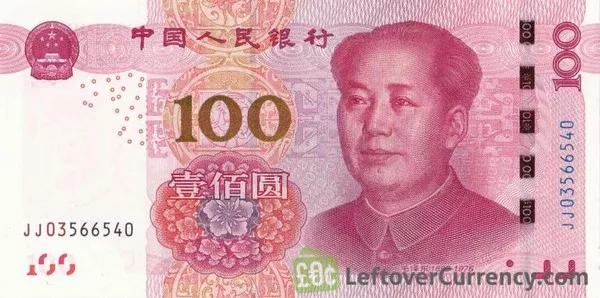The Renminbi (RMB), often referred to as the Chinese Yuan, is a currency that has gained significant prominence in the global financial landscape. As the world’s second-largest economy, China’s currency plays a vital role in international trade, investment, and finance. One of the critical factors influencing China’s economic interactions with the world is its exchange rate. In this article, we will explore what the Renminbi exchange rate is, why it matters, how it is determined, and its impact on the global economy.
What is the Renminbi Exchange Rate?
The Renminbi exchange rate is the rate at which one unit of Chinese currency, the Renminbi, can be exchanged for another currency, such as the United States Dollar (USD), Euro (EUR), or Japanese Yen (JPY). This exchange rate fluctuates over time and influences international trade, investment, and financial flows. Understanding how this rate is determined is essential for businesses, investors, and policymakers.
The Importance of the Renminbi Exchange Rate
The Renminbi exchange rate is crucial for several reasons:
a. International Trade: A stable and predictable exchange rate is essential for international trade. Exporters and importers rely on exchange rates to determine the price of goods and services in foreign markets. A depreciating Renminbi can make Chinese exports more competitive, while an appreciating Renminbi can increase the cost of Chinese goods in foreign markets.
b. Capital Flows: Investors, both domestic and foreign, pay close attention to the Renminbi exchange rate. Fluctuations in the exchange rate can influence the return on investment, making it an important factor for investment decisions.
c. Economic Stability: A stable exchange rate is essential for China’s economic stability. Sharp fluctuations in the Renminbi can lead to financial market turbulence and create uncertainty in the domestic economy.
d. Global Economic Imbalances: The Renminbi exchange rate is a key factor in global economic imbalances. If China maintains an undervalued currency, it can lead to trade imbalances and disputes with its trading partners. Consequently, changes in the exchange rate can have far-reaching implications for global economics.
Determinants of the Renminbi Exchange Rate
The Renminbi exchange rate is not solely determined by market forces, like many other major currencies. Instead, the People’s Bank of China (PBOC), China’s central bank, plays a significant role in managing and influencing the exchange rate. The PBOC’s approach to managing the Renminbi exchange rate has evolved over the years, and it involves a combination of market forces and government interventions. Here are some key factors that determine the Renminbi exchange rate:
a. Market Forces: The Renminbi’s value is influenced by supply and demand factors in the foreign exchange market. When demand for Renminbi exceeds supply, its value appreciates, and when supply surpasses demand, it depreciates. This is the foundation of a market-determined exchange rate.
b. Managed Float: The PBOC allows the Renminbi to float within a certain band of daily fluctuations against a basket of international currencies. This allows for some flexibility in the exchange rate while avoiding excessive volatility.
c. Exchange Rate Regime: The PBOC’s approach to managing the Renminbi has evolved from a fixed exchange rate to a managed float with greater flexibility. They refer to this approach as a “managed exchange rate regime.”
d. Intervention: The Chinese government intervenes in the foreign exchange market to stabilize the Renminbi’s value when it deems necessary. This intervention can involve buying or selling Renminbi in the market to influence its value.
e. Exchange Rate Policies: The Chinese government has been known to implement various exchange rate policies, such as setting a daily reference rate, known as the “fix,” and announcing changes to the basket of currencies against which the Renminbi is pegged.
Impact on the Global Economy
The Renminbi exchange rate has a significant impact on the global economy. Here are a few ways in which it affects international economic dynamics:
a. Trade Imbalances: As mentioned earlier, China’s exchange rate policies can influence trade imbalances with its trading partners. A weak Renminbi can lead to a surplus in China’s trade balance, which can be a source of tension with other countries.
b. Currency Manipulation: China has been accused of manipulating its currency to gain a competitive advantage in international trade. This has led to debates and disputes with trading partners and international organizations.
c. Capital Flows: Changes in the Renminbi exchange rate can affect capital flows into and out of China. A strong Renminbi may attract foreign investment, while a weak Renminbi can lead to capital flight.
d. Global Reserves: As the Renminbi becomes more internationalized and China’s economy continues to grow, it has the potential to become a significant global reserve currency, challenging the dominance of the US dollar.
e. Financial Markets: Fluctuations in the Renminbi exchange rate can impact global financial markets. Investors watch these fluctuations closely as they can influence investment decisions and financial asset prices.
Recent Developments
Over the past few years, China has taken steps to internationalize the Renminbi and make it a more prominent global currency. In 2016, the International Monetary Fund (IMF) included the Renminbi in its Special Drawing Rights (SDR) basket of reserve currencies, a significant recognition of its global importance.
Additionally, China has been actively promoting the use of the Renminbi in international trade through initiatives such as the Belt and Road Initiative (BRI) and the establishment of offshore Renminbi trading centers. These efforts aim to reduce China’s reliance on the US dollar in international trade and finance.
Conclusion
The Renminbi exchange rate is a critical factor in international finance, trade, and investment. Understanding how it is determined, its impact on the global economy, and recent developments in its internationalization is essential for businesses, investors, and policymakers. As China’s economy continues to grow and its currency becomes more influential, the Renminbi exchange rate will remain a topic of global significance, shaping economic interactions around the world.


